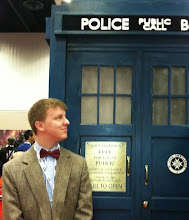When looking at whether or not pop culture is important, it seems like there is no question. It exists so let’s be curious about it. Personally, the examination of what sort of ring tones each gender uses or the philosophy of the Geico gecko is not as compelling as the pop culture that involves stories.
Stories are the one of the most effective forms of expression. Emotions are too complex for vocabulary. The English language has an absurd number of words—way more than any other language—but there is still a compromise to the nuances. The word “love” does not encompass what that word actually entails. So stories are created to replicate feelings and ideas so others can experience them.
Then the analysis comes from whether or not the story was as effective as it could be or whether it is a story worth telling. In order to fully have that emotional connection, quality is important. Sticking with the concept of love, what movie made you swoon: the wonderful Irish musical Once or the half-assed No Strings Attached?
When all of the elements are working there is something profound happening. The human experience can be richer and there is greater understanding of humanity. That is not to say that all stories must be dense and academic; the stories that make you laugh are just as important as the ones that make you cry. Laughter is invoking a pure emotion containing joy and surprise. It’s reactionary and yet still personal. This is effective expression. The artist observed something that struck them and they want to convey that to you. Through creation, we are now laughing at an actualized version of his thought.
So it is important to be critical. Stories have the potential for so much greatness that it is silly to keep supporting the ones that aren’t working. I don’t understand the idea of a “guilty pleasure” because I think you should be able to articulate why you like something. What you watch should be good, at least to you. I adore shows like Mad Men and Breaking Bad, but I can also tell you why the show Greek is worthwhile…well at least the first few seasons. It’s not snobbery; it’s about recognizing when something is working, no matter the genre or subject matter. Those are the stories that really matter.
Now it would be completely silly to post this without telling a story of my own. So here’s a very simple story reflecting some of the stuff I’ve talked about.
“Honey?”
“Hmm?”
“You seem down.”
“Oh. I dunno. Sorry.”
“It’s just that you’re eating Fruity Pebbles. Nobody should look down when they’re eating Fruity Pebbles.”
“Because if you look down you’ll see this colory grossness?”
“Ah! Take that back.”
“I’m sorry. It’s just…what do you see when I hold my hands like this?”
“Like you’re holding an invisible basketball?”
“Yeah.”
“Nothing.”
“Yeah, exactly. There’s nothing here but in my imagination I see a globe. I can describe to you the color of the ocean and the way it turns and how Europe looks too simplified. I can describe that for hours and hours and no matter what, you won’t see the same globe I see. It’ll just be a little bit different and there’s something sad about that. That no matter what, we can’t experience the same thing.”
“It doesn’t have to be.”
“What?”
“Sad. It doesn’t have to be sad. Imagine that. One world and there’s only one perspective to see things. Where’s the fun in that? If we all saw sunflowers the same way, then we wouldn’t have what earless wonder did. I can’t see your globe, you can’t see mine but we have visions of each others. You didn’t fail, you inspired.”
“From all of that, from all you said, I feel that…it’s okay that I don’t like Fruity Pebbles.”
“No it is not. Seriously, what the hell?”
http://bsucommpop.blogspot.com/2011/01/importance-of-stories.html


No comments:
Post a Comment